News review - February 2018
It was inevitable that tales of winter pressures would dominate December and January. Amid continuing rumblings about NHS finances – and the ‘reappointment’ of Jeremy Hunt with an expanded portfolio that now includes social care – persistent cold weather and a flu outbreak contributed to some of the most difficult weeks the service has faced in the last few years.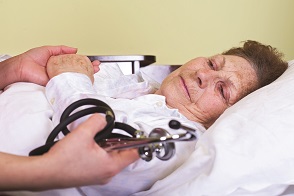
The winter pressures hit hard in all four UK nations. By the end of the first week of 2018, the flu rate in Scotland was four times higher than the same week in 2017. GPs in Northern Ireland and Wales saw a big increase in the number of flu-like cases, while in England consultations for the illness rose by 42% between the first and second weeks of January. Flu and the cold weather were major reasons for a drop in A&E performance against the four-hour target – in Scotland just under 80% of patients were seen within four hours in the first week of 2018.
Meanwhile, in England weekly situation reports and monthly figures for December showed increasing strain on the system. Just over 85% of A&E patients were seen within the four-hour standard in December, according to NHS England. This compares with 88.9% in November 2017 and 86.2% in December 2016. The 95% target has not been met since July 2015. The figures show a 3.7% rise in A&E attendance compared with December 2016 and a 4.5% rise in emergency admissions. Overall, between December 2016 and December 2017 there was a 2.9% increase in emergency admissions. However, there was controversy over how the figures were calculated.
Governments and oversight bodies took steps to help the NHS cope. The Welsh government allocated £10m to health boards, the ambulance service and social care to help relieve winter pressures. It has also relaxed the quality and outcomes framework element of the GP contract until the end of March to allow practices to focus on the most vulnerable and sick patients.
NHS England allowed the deferral of non-emergency elective care to be extended until 31 January to help trusts cope. The National Emergency Pressures Panel said over the Christmas period there was sustained pressure on the NHS through high levels of respiratory illness, high bed occupancy, early indications of rising flu prevalence and suggestions that patients were arriving at A&E more seriously ill. The panel recommended measures to help hospitals cope. As well as a temporary suspension of sanctions for mixed-sex accommodation breaches, it said day cases and routine outpatient appointments should be deferred to release clinical time for non-elective care.
NHS Providers said the winter pressures marked a watershed for the NHS – government must accept that the service cannot do all that is required of it within the current funding envelope. In a letter to health and social care secretary Jeremy Hunt, the provider body said that despite greater preparedness than ever, there were not enough beds and staff to maintain standards of care and safety. It called for a review of how the NHS has handled the winter pressures and insisted decisions must be made on the long-term funding of health and social care before November’s Budget.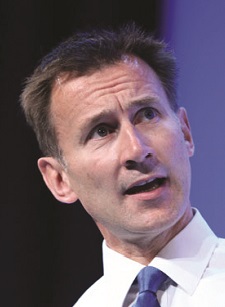
A new year Cabinet reshuffle brought surprises for the NHS in England. Though Jeremy Hunt (pictured) was widely tipped to move on, he remains health secretary with additional responsibility for social care. Now health and social care secretary leading the Department of Health and Social Care, it is unclear what the change in title means. It was reported that the Department will take responsibility for an upcoming green paper on the future of elderly care. Two new ministers of state – Caroline Dinenage, former junior minister at the Department for Work and Pensions; and Stephen Barclay, previously economic secretary to the Treasury – join Mr Hunt.
NHS England chief financial officer Paul Baumann (pictured below) was awarded a CBE for services to NHS financial management in the New Year’s Honours list. Mr Baumann joined the NHS in 2007 as London Strategic Health Authority director of finance and performance. He moved on to NHS England (then the NHS Commissioning Board Authority) in 2012.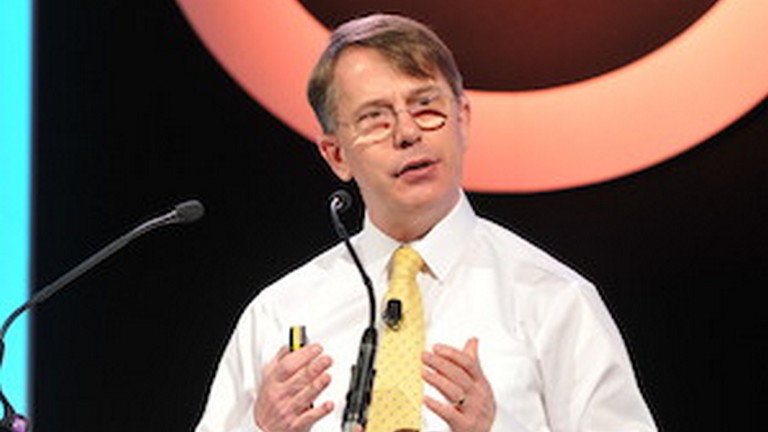
The Department submitted its evidence to the NHS Pay Review Body in December, insisting that, in reaching its recommendations for next year, the body should take account of ongoing negotiations between NHS Employers and trade unions. The government has pledged to fully fund any deal for Agenda for Change staff that meets its requirements of improving staff retention and productivity. A separate letter for the Doctors’ and Dentists’ Pay Review Body (DDRB) asked it to take account of negotiations with the British Medical Association over consultants’ contracts. Though the government’s approach to public sector pay was now more flexible, Mr Hunt insisted pay discipline was needed. In a further letter, NHS England reminded the DDRB that no additional government funding has been provided for a pay rise of more than 1% for doctors and dentists.
The Treasury revised the threshold for senior manager pay controls to £150,000 and above from 1 January. The previous threshold of £142,500 will continue to be applied to any proposal made before the start of the year. NHS trusts must seek ministerial approval – FTs must ask for ministerial opinion – on pay proposals at or above the threshold.
Men earn on average 14.2% an hour more than women across the Department of Health and its executive agencies. The Department’s Gender pay gap report 2016/17 said this was despite the fact that just under two-thirds of all staff in these organisations are women. The report also found that 72% of staff in the lower pay quartile are women, down to 55% in the upper quartile.
The health budget in Scotland will rise by more than £400m in 2018/19 and staff earning up to £30,000 will be guaranteed a minimum 3% pay rise, finance secretary Derek Mackay confirmed. The Health and Sport Department resource budget will rise to £13.1bn and capital spending will be £351m. Mr Mackay said the government prioritised investment and reform in the health service and extra funding for frontline health boards would be £354m – 2.2% up in real terms. The draft Budget also increases funding for primary care and mental health, and takes forward capital projects. The public sector pay policy, published with the Budget, sets out pay rises according to current earnings – 3% rise for all earning £30,000 or less; 2% cap on baseline pay bill for all earning more than £30,000; £1,600 limit on the maximum pay uplift for those over £80,000.Contingency plans were put into action following the announcement of Carillion’s insolvency in January. NHS Improvement said national and local organisations had been working on these for a few months. The NHS was a relatively small customer of the firm – Carillion had been subcontracted to provide hard or soft facilities management at 13 trusts with PFI schemes, while a further three and several primary and community care properties had contracted Carillion to provide services. The firm was involved in two sites under construction.
Month in quotes
‘More people are visiting GPs with flu symptoms and we are seeing more people admitted to hospital with flu. In terms of hospital admission, this is the most significant flu season since the winter of 2010 to 2011 and the preceding pandemic year of 2009, although it is not an epidemic.’
Public Health England medical director Paul Cosford on the increase in flu rates
‘The NHS is in the grips of another winter crisis, as patients face long delays, operations are cancelled and staff work under extremely difficult circumstances. What is happening in our A&Es is symptomatic of pressures across the entire system.’
Anthea Mowat, British Medical Association representative body chair, says solutions are required for the NHS as a whole
‘Last year we had a lot of operations cancelled at the last minute. It is better, if you are unfortunately going to have to cancel or postpone some operations, to do it in a planned way. Although if you are someone whose operation has been delayed I don’t belittle that for one moment and I apologise to everyone that has happened to.’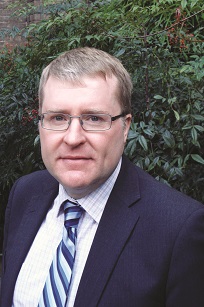
Health and social care secretary Jeremy Hunt apologises for the postponement of routine operations
‘The decision to cancel planned operations will have a significant impact on patients but the figures for bed occupancy show hospitals are effectively full. The service has reached the limit of what it can deliver within current funding levels.’
King’s Fund policy director Richard Murray (pictured) calls for a long-term funding solution
From the HFMA
The HFMA published several blogs on its website in December and January, on a range of topics:
HFMA National Payment System Group chair Lee Outhwaite says that while there are clear differences between the NHS and Australia’s health service, including the level of public funding for healthcare (67% in Australia compared with 84% in the UK), there are similarities, such as approaches to payment and the need to move to population-based health.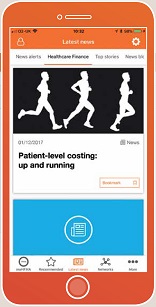
Bill Shields continues his series of blogs since becoming chief finance officer at Bermuda Hospitals Board. In the latest instalment, after a trip back to the UK for the HFMA annual conference, he offers his insights on how different health systems are squaring up to similar financial and service pressures.
Can the NHS afford to ignore the environmental sustainability agenda, asks Sandra Easton, the chair of the HFMA Environmental Sustainability Special Interest Group? The association would like to understand if NHS organisations are progressing with the agenda or if it’s taken a back seat in the face of financial and operational pressures. She asks members to complete a short survey to get the views of the finance function.
Following the launch of the HFMA app in December, feedback and uptake have been good. The app, which brings together all aspects of the HFMA’s work – events, networks, publications and news – can be downloaded from the App Store or Google Play.
Related content
We are excited to bring you a fun packed Eastern Branch Conference in 2025 over three days.
This event is for those that will benefit from an overview of costing in the NHS or those new to costing and will cover why we cost and the processes.